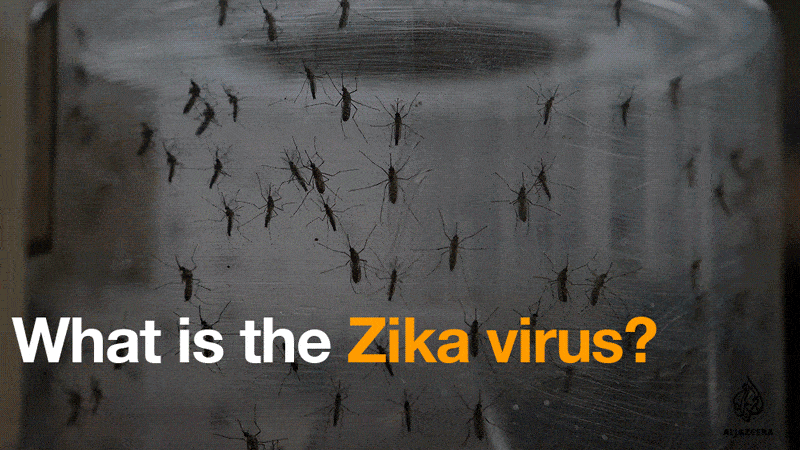Zika virus: US widens travel warning in Florida’s Miami
Pregnant women told to avoid tourist area as Florida confirms five new cases of virus spread primarily via mosquitoes.

US health officials have warned pregnant women to avoid Florida’s Miami Beach area after receiving confirmation that the Zika virus is active in the international tourist destination.
The US Centers for Disease Control and Prevention on Friday said that pregnant women who are especially worried about exposure to Zika might also consider avoiding all of Miami-Dade County.
Keep reading
list of 4 itemsDeadly Sahel heatwave caused by ‘human-induced’ climate change: Study
Woman, seeking loan, wheels corpse into Brazilian bank
UK set to ban tobacco sales for a ‘smoke-free’ generation. Will it work?
The virus generally causes mild symptoms in adults, but can cause severe birth defects in the children of pregnant women who become infected with the virus.
Rick Scott, governor of Florida, said state health officials have identified five cases of Zika believed to have been contracted in Miami Beach.
“This means we believe we have a new area where local transmissions are occurring in Miami Beach,” he said, noting that Florida had already stepped up pesticide-spraying efforts in this area.
READ MORE: Zika facts you need to know
Of the five new cases in Miami Beach, one person is a resident of New York, one person is a resident of Texas and one person is a resident of Taiwan.
“All three of these people travelled to Miami,” Scott said.
In Miami Beach, officials say, Zika transmission is confined to a 1.5sq mile area located between 8th and 28th streets in the popular South Beach neighbourhood.
The new warnings represent a challenge to Florida’s multi-billion-dollar tourism industry, with Miami Beach accounting for nearly half of visitor stays in the Greater Miami area.
The virus, spread primarily via mosquitoes, has seriously affected Latin America in recent months.
Challenge to tourism
Reporters charged Scott with underplaying Zika transmission and delaying confirmation to minimise the effect on tourism in Florida.
Scott responded that Florida was taking every measure to ensure the information they provided to the public was accurate.
Speaking later on Friday, however, Miami Beach Mayor Philip Levine expressed frustration with Scott and the state’s health department for keeping him and other elected officials in the dark about the five locally transmitted Zika cases.
He said mayors across Miami received the information at the same time as media. “It’s backwards,” Levine said.
|
|
Senator Harry Reid, a Democrat, said the transmission of Zika in Miami Beach “is the most alarming development yet in the rapidly growing threat of Zika in the United States”.
Both Reid and Florida Senator Marco Rubio, a Republican, renewed calls for legislators in the House of Representatives and Senate to return to Washington DC to authorise funding to help public health officials fight the spread of Zika.
President Barack Obama in February requested $1.9bn to fight Zika but Congressional efforts to approve part of the funding deadlocked before legislators adjourned for the summer.
Puerto Rico study
Earlier on Friday, US health officials published a study estimating that as many as 270 babies in the territory of Puerto Rico may be born with the severe birth defect known as microcephaly caused by Zika infections in their mothers during pregnancy.
A public health emergency was declared in Puerto Rico on August 12 after more than 10,000 laboratory-confirmed cases were recorded, including more than a thousand pregnant women.
The condition, in which infants are born with abnormally small heads and underdeveloped brains, is estimated to cost $10m over the lifetime of one child.
The connection between Zika and microcephaly first came to light last autumn in Brazil, which has now confirmed more than 1,800 cases of microcephaly that it considers to be related to Zika infection in the mothers.
